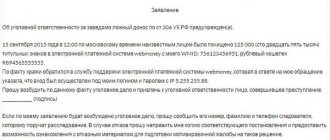Author: Bartolomeo Buchi
30 May 2022 16:20
Tags: 48 hours police detention
2381
6
Employees of the Ministry of Internal Affairs have the right to detain citizens in order to prevent crimes that have not yet been committed and to investigate those that have already occurred. The grounds for temporary restriction of freedom can be different - from the need to confirm identity in the absence of documents to suspicion of breaking the law. Next, we will tell you how long they can be kept in police custody.
Reasons for detention
0
Source:
See all photos in the gallery
How long a person can be detained by the police depends on the reasons why he was taken to the police station. The detainee must list them and name the period of temporary restriction of freedom. Grounds for detaining a citizen by police officers: - lack of documents; — suspicion of committing a crime or complicity in it; — existence of a court decision on detention; - evasion of punishment; — penetration into a protected area; — attempt to commit suicide; - search; - escape from custody. The full list of reasons is contained in Art. 14 of the Federal Law “On Police”. Let us dwell in more detail on the grounds for detaining a citizen by police officers if he is suspected of a crime. In this case, a citizen can be temporarily deprived of his liberty if: - he was found at the crime scene; — the citizen was identified by the victim or witnesses; - They found evidence with traces of blood on him.
Detention procedure
0
Source:
The police officer is required to introduce himself, stating his position and full name, present his identification, indicate the reasons and time of detention at the police station. The detainee should be allowed to call loved ones, notify superiors, and also contact a lawyer. An employee of the Ministry of Internal Affairs draws up a detention report, a copy of which is given to the citizen. Lawyers do not recommend signing any papers without your lawyer. Even if the police assure you that these are formal documents, read them from beginning to end so as not to accidentally admit to committing a crime. If a minor is detained, police are required to inform his parents or guardians. Citizens brought to the police department are kept in specially designated premises. They must meet sanitary standards. The detainees are locked up. Before placing a citizen in a specially designated room, his belongings are inspected. Information about the results of the search is included in the protocol. Detainees are fed and provided with a place to rest at night. Please note that the police department houses separately: - persons under 18 years of age and adults; - suffering from infectious diseases. It is prohibited to place in special premises: - seriously ill people; - persons with moderate or severe diabetes; — pregnant women; - citizens with children.
×
Algorithm of actions in case of unlawful actions of the police
When communicating with the police, a citizen should strictly adhere to the law. After all, any mistake can reduce the chance of recognizing the work of law enforcement officers as unlawful. In addition, you need to immediately get involved in the situation. And this means the following:
- tracking the subtleties of the procedure;
- demanding compliance with your rights;
- calm response to the actions of law enforcement officers;
- preparation for filing a complaint.
Step 1: Find out information
In the first minute of unpleasant communication, you need to demand a demonstration of your ID. The police officer is required to confirm his rights with a document. Further behavior depends on the answer:
- If the document is shown, then you need to remember or write down information about the official;
- If there is a refusal, then you need to immediately call 02. This is a serious violation of the procedure;
- If the officer does not allow you to write down your data, then you need to ask him for the number of the duty station. Next, the following is done: a call is made to the duty desk;
- their employee's misconduct is reported.
If the authorities have confirmed that there is no such policeman in the department, then they should respond immediately. You need to dial 02 and report the situation. It consists in the fact that a person in uniform wants to kidnap a citizen.
If law enforcement officers use a vehicle to transport a detainee, it is necessary to write down (photograph) the license plate number of the vehicle. It would be useful to record witnesses to the incident. They will then confirm the illegality of the police activity.
Step 2: Be calm and confident
You should speak with officers calmly. It is forbidden to offer active resistance to them .
Raised demands won't help either. We need to calmly respond to the behavior of lawbreakers. Moreover, they are required to provide the reason for the retention. We'll have to wait a little. Resistance to law enforcement is recognized as a criminal act. Then it will be difficult to prove that the person was provoked to do so by the officers themselves.
You should talk:
- confident;
- pointedly polite;
- without using obscene language;
- calmly, clearly and unambiguously.
Step 3: Using the legal rights of the detainee
A citizen can demand the following from the police:
- notifications about what happened within three hours: close relatives;
- lawyer;
In addition, a person is not required to testify against himself . That is, you can refuse to testify without the presence of a lawyer. You can directly inform the police that you intend to appeal the wrongful arrest. If a detainee becomes ill, he is required to receive medical assistance.
Step 4: Study the Protocol
The constituent parts of the document are of utmost importance in determining the legality of the process. By law, it is required to indicate:
- date;
- time;
- Personal Information;
- reason.
The document should be read carefully, focusing on the nuances. In addition, the detainee must be given a copy. You need to request your copy. You can also do the following:
- ask for amendments to the text - comments are written in a special column;
- comment on content;
- disagree with the content, about which a mark is placed at the bottom of the sheet;
- make changes to the text with your own hand - in the column provided for this.
Refusal to sign the paper does not give the detainee anything. It is better to add your own opinion in the appropriate section. In addition, you will need to record the issue of the copy. If this does not happen, then it is indicated: “Did not receive a copy.”
Step 5: filing a complaint
Wrongful decisions of police officers can be appealed to the supervisory authority. The complaint is addressed to the prosecutor. Its text is quite simple. It includes the following parts:
- Cap (top right): name of the recipient body;
- personal information about the applicant, including: Full name;
- address of the actual residence;
- contact number;
- time of the beginning of communication with the police;
Sample complaint about illegal detention by police officers
The complaint to the prosecutor's office is written in two copies (if desired). One remains with the government agency, the second is marked with the date and registration number. The prosecutor must send a response in writing within one month . The review may be extended for an additional 30 days if further investigation is required.
If the prosecutor's decision does not satisfy the applicant, then he can go to court. The claim sets out the circumstances of the case and requests compensation for damages in accordance with paragraph 1 of Article 1070 of the Civil Code. And articles 1100 and 151 of the law allow you to claim compensation for moral damage.
Article 1070 of the Civil Code of the Russian Federation “Liability for harm caused by illegal actions of the bodies of inquiry, preliminary investigation, prosecutor’s office and court”
Article 1100 of the Civil Code of the Russian Federation “Grounds for compensation for moral damage”
Article 151 of the Civil Code of the Russian Federation “Compensation for moral damage”
Detention for 48 hours
0
Source:
Let's look at why someone can be detained for 48 hours. This is possible if law enforcement officers have reason to believe that the citizen is involved in breaking the law. In two days, the Ministry of Internal Affairs must confirm this with facts or release the detainee. It is important to know how long they can be detained by the police to clarify the circumstances in the following cases: - a citizen has committed an offense in internal waters, a special economic zone; - the citizen violated customs rules; - a person illegally crossed the border of the Russian Federation. The maximum period for these situations is 48 hours. The same will be the maximum time for police detention if a person suspected of an administrative offense is detained, for which arrest or deportation from the country may be imposed. It is important to know not only how long the police can detain you, but also from what point this period is calculated. For example, if we are talking about a drunk citizen, then the period begins from the moment he sobers up. After 48 hours, events may develop according to one of the following scenarios: - the court issues a decision on the selection of a preventive measure; — the time of detention is extended for exceptional reasons; - the citizen is released.
Liability for unlawful restriction of freedom
The Prosecutor's Office carries out the following activities:
- requests materials from the police;
- selects explanations from employees involved in the operation;
- decides on the legality of actions.
If it turns out that law enforcement officers violated the law, the materials are sent to the Investigative Committee to initiate criminal proceedings. This is done under Article 301 of the Criminal Code. After investigation, the case is sent to court. Article 301 provides the following maximum penalties:
- imprisonment for up to 2 years or restriction up to 3;
- forced labor for up to 2 years;
- arrest for a period of 4 to 6 months;
- ban on engaging in professional activities for up to 3 years.
Article 301 of the Criminal Code of the Russian Federation “Illegal detention, detention or detention”
Investigators are rarely subject to criminal prosecution. As a rule, the matter is limited to disciplinary action. There may be a serious violation of the law if no investigative measures were taken with the detainee. Even people in uniform cannot deprive a person of freedom without explanation - this is prohibited.
In what cases are they delayed for 3 hours?
0
Source:
Let's consider in what cases a detention of 3 hours is possible. The main reason is to clarify the identity. This means that the citizen aroused suspicion among the police, but he did not have any documents with him. In this case, law enforcement officers can take him to the department. If during this time it turns out that the citizen is on the wanted list, is suspected of a crime, etc., the time of detention by the police will increase. In addition, a person who was drunk in a public place may be detained for three hours. After three hours, the detainee must be released if: - suspicions are not confirmed; - there are no grounds for detention; — during the arrest, the requirements of the law were violated. Remember that if you exceed the time of police detention without reason, you have the right to demand immediate release.
How long can the police detain without charge?
0
Source:
If a citizen is suspected of a crime, the time of detention can be extended to 72 hours. This is possible based on a court decision. The maximum time of police detention is 120 hours (5 days). After this, the detainee must be released due to the fact that the suspicions were not confirmed, or some kind of preventive measure must be chosen against him. The court may impose house arrest, release the person on his own recognizance, etc. We answered the question of how long they can be held in police custody without charge. Next, we will consider how to behave when detained.
The legislative framework
To achieve a review of a previously made decision, one should rely on the following legislative acts:
- Criminal Procedure Code of the Russian Federation dated December 18, 2001. N 174-FZ (as amended on July 31, 2020).
- Criminal Code of the Russian Federation dated June 13, 1996. N 63-FZ (as amended on July 31, 2020).
- Code of the Russian Federation on Administrative Offenses dated December 30, 2001. N 195-FZ (as amended on July 31, 2020) (as amended on August 11, 2020).
- Constitution of the Russian Federation (adopted by popular vote on December 12, 1993, with amendments approved during the all-Russian vote on July 1, 2020).
- FKZ dated 02/07/2011 N 1-FKZ “On courts of general jurisdiction in the Russian Federation” (as amended on 03/06/2019).








